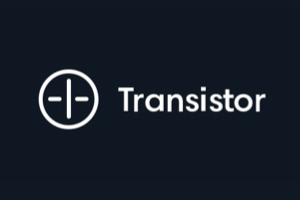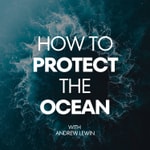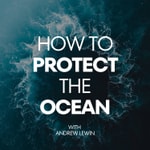Right Of Way – Détails, épisodes et analyse
Détails du podcast
Informations techniques et générales issues du flux RSS du podcast.

Right Of Way
Hannah Harrison and Nicolas Winkler
Fréquence : 1 épisode/8j. Total Éps: 13

Classements récents
Dernières positions dans les classements Apple Podcasts et Spotify.
Apple Podcasts
🇨🇦 Canada - documentary
28/09/2024#90🇨🇦 Canada - documentary
10/09/2024#75🇨🇦 Canada - documentary
09/09/2024#56🇨🇦 Canada - documentary
08/09/2024#35🇨🇦 Canada - documentary
07/09/2024#38
Spotify
Aucun classement récent disponible
Liens partagés entre épisodes et podcasts
Liens présents dans les descriptions d'épisodes et autres podcasts les utilisant également.
See all- https://www.podstarter.io/
472 partages
- https://www.surfrider.org/
46 partages
- https://leavenotrace.ca/
6 partages
Qualité et score du flux RSS
Évaluation technique de la qualité et de la structure du flux RSS.
See allScore global : 79%
Historique des publications
Répartition mensuelle des publications d'épisodes au fil des années.
Episode 11: Right to Roam
Épisode 11
dimanche 1 septembre 2024 • Durée 27:10
What would it take to have a right to roam in Nova Scotia? In this episode, we hear about efforts to get people to the coast through legislation and legwork, and contemplate what a right to roam would look like in Atlantic Canada.
Special thanks to our guests in this episode, Dr. Andrew Weaver and Hannah Solway.
In this episode, you heard about:
Bill M 223 - 2017: Right to Roam
Surfrider Atlantic
Surfrider Foundation (Worldwide)
You can learn more about the Coastal Access Project and share your coastal access story with us on our website: www.coastalaccessproject.com.
Special thanks to the Royal Canadian Geographic Society and the Social Sciences and Humanities Research Council of Canada for their support of this project. Thanks also to the Marine Affairs Program at Dalhousie University for additional support, editing and sound design by Podstarter (https://www.podstarter.io/), and cover art from Laura Bonga.
Episode 10: Visited to Death
Épisode 10
dimanche 25 août 2024 • Durée 30:10
We've all had the experience of seeing a photo of a beautiful place and thinking, "Wow, I'd like to go there!" But what happens when whole digital cultures develop around visiting natural landscapes in order to get a photo and stake out a piece of it for ourselves? As we lose access to our own coast lines in Nova Scotia, are we recreating the problem of tourism-oriented coastal development in the countries we visit? In this episode, we hear about the benefits and consequences of when treasured coastal spaces are 'liked' to death.
Special thanks to our guests in this episode, Andre Bourgeois and Andre Joseph-Witzig.
In this episode you heard from:
Jamaica Beach Birthright Environment Movement
Vox "What happens when nature goes viral?"
AlJazeera "Why Can't Jamaicans Access Their Own Beaches?"
Grenada Land Actors
Cape Breton Highlands National Park
You can learn more about the Coastal Access Project and share your coastal access story with us on our website: www.coastalaccessproject.com.
Special thanks to the Royal Canadian Geographic Society and the Social Sciences and Humanities Research Council of Canada for their support of this project. Thanks also to the Marine Affairs Program at Dalhousie University for additional support, editing and sound design by Podstarter (https://www.podstarter.io/), and cover art from Laura Bonga.
Episode 1: The Law of the Land (and Sea)
Épisode 1
dimanche 23 juin 2024 • Durée 34:16
Who owns Nova Scotia's coastline? Perhaps a better question, who controls access to it? In Episode 1, we speak with East Coast Environmental Law's Mike Kofahl and Dalhousie University law student Samuel Eisner about the complicated jurisdiction of access and control that shapes Nova Scotia's coastlines.
In this episode, we discuss a number of acts and court cases, including:
Land Surveyors Act
Beaches Act
Trails Act
Angling Act
Community Easements Act
Occupiers Liability Act
Lynn v. Nova Scotia
Halifax Regional Municipality v. Rhyno
You can learn more about the Coastal Access Project and share your coastal access story with us on our website: www.coastalaccessproject.com.
Special thanks to the Royal Canadian Geographic Society and the Social Sciences and Humanities Research Council of Canada for their support of this project. Thanks also to the Marine Affairs Program at Dalhousie University for additional support, editing from Podstarter, and cover art from Laura Bonga.
Trailer: Right of Way
vendredi 7 juin 2024 • Durée 03:55
As Canadians access the shore for recreation, science, or even just to take in the natural beauty of the coast, they are being increasingly met with physical barriers to the beach, few options to park or use public transportation to get to the coast, and problems with litter and marine debris in the areas they can access. Private property ownership dominates Nova Scotia’s coastline, and while the public wants access, property owners also want to enjoy privacy and avoid the degradation of their land. In other words, in a province known as Canada’s Ocean Playground, people are increasingly asking – a playground for who?
Join hosts Nicolas Winkler and Hannah Harrison in this weekly series as they explore these questions and more concerning coastal access in Nova Scotia.
Interested to learn more about the coastal access project? Visit www.coastalaccessproject.com.
Episode 9: Unnavigable
Épisode 9
dimanche 18 août 2024 • Durée 23:28
Nova Scotians experiencing coastal access problems, whether land owners or the general public, have reported over and over that they struggle to get in touch with public servants or decision-makers and that finding meaningful and timely information about their situation is a constant challenge. These frustrating experience leave people feeling unheard and unsure about where to turn for help. But what is the experience like from the public servant point of view?
Special thanks to our guest Halifax City Councillor Patricia Cuttell.
HRM 2024 district boundaries
You can learn more about the Coastal Access Project and share your coastal access story with us on our website: www.coastalaccessproject.com.
Special thanks to the Royal Canadian Geographic Society and the Social Sciences and Humanities Research Council of Canada for their support of this project. Thanks also to the Marine Affairs Program at Dalhousie University for additional support, editing and sound design by Podstarter (https://www.podstarter.io/), and cover art from Laura Bonga.
Episode 8: Eagle Head Bay
Épisode 8
dimanche 11 août 2024 • Durée 40:55
In Eagle Head Bay, access to the beach, coastal trails or roads, and the protective qualities of wetlands is being eroded. In this episode, we learn about the intersection between coastal development and coastal access and what happens when fights over coastal access and environments bring communities together, and tear them apart.
Special thanks to our guests Peter Leslie, Cathie Mourre, and Brian Mourre.
Nova Scotia Wetland Conservation Policy
Ecology Action Centre's activism on wetland policy changes
Coastal Protection Act scrapped
Global News - Eagle Head residents sue former Halifax Mayor
You can learn more about the Coastal Access Project and share your coastal access story with us on our website: www.coastalaccessproject.com.
Special thanks to the Royal Canadian Geographic Society and the Social Sciences and Humanities Research Council of Canada for their support of this project. Thanks also to the Marine Affairs Program at Dalhousie University for additional support, editing and sound design by Podstarter (https://www.podstarter.io/), and cover art from Laura Bonga.
Episode 7: Chimney Corner Beach
Épisode 7
dimanche 4 août 2024 • Durée 28:38
On the western edge of Cape Breton is a popular beach that was almost lost to the public if not for the tenacity and detective work of a local environmental group. In this episode, we visit Chimney Corner Beach and learn about how the Margaree Environmental Association dug into years of experience and discovered more than they expected to find in their efforts to safeguard generations of access.
Special thanks to our guests Neal Livingston and Brian Peters of the Margaree Environmental Association.
In this episode, you heard about:
Chimney Corner Beach website
Neal Livingston films
You can learn more about the Coastal Access Project and share your coastal access story with us on our website: www.coastalaccessproject.com.
Special thanks to the Royal Canadian Geographic Society and the Social Sciences and Humanities Research Council of Canada for their support of this project. Thanks also to the Marine Affairs Program at Dalhousie University for additional support, editing and sound design by Podstarter (https://www.podstarter.io/), and cover art from Laura Bonga.
Episode 6: South Bar
Épisode 6
dimanche 28 juillet 2024 • Durée 47:45
This episode is about a battle for a road. Specifically, a road that leads to a sandbar in South Bar, Cape Breton. Over 10 years in the making, this story shows why coastal access is so important to Nova Scotians, and the painful and dehumanizing way conflicts over unclear deeds and conflicting values can play out.
Special thanks to our guests Rodney Gale, Janet Dermody, and Katannya Kayler.
You can learn more about the Coastal Access Project and share your coastal access story with us on our website: www.coastalaccessproject.com.
Special thanks to the Royal Canadian Geographic Society and the Social Sciences and Humanities Research Council of Canada for their support of this project. Thanks also to the Marine Affairs Program at Dalhousie University for additional support, editing and sound design by Podstarter (https://www.podstarter.io/), and cover art from Laura Bonga.
Episode 5: This land is my land
Épisode 5
dimanche 21 juillet 2024 • Durée 40:49
In a province where 87% (or more) of the coastline is privately owned, private property owners can often be at the brunt end of coastal access conflicts. Yet, there are ways that property owners and communities can work together to maintain or create access. In this episode, we hear two stories of property owners who came 'from away' to rural Nova Scotian communities and instead of putting up No Trespassing signs, they took a different route.
You can learn more about the Coastal Access Project and share your coastal access story with us on our website: www.coastalaccessproject.com.
Special thanks to the Royal Canadian Geographic Society and the Social Sciences and Humanities Research Council of Canada for their support of this project. Thanks also to the Marine Affairs Program at Dalhousie University for additional support, editing from Podstarter, and cover art from Laura Bonga.
Episode 4: The Portage Problem
Épisode 4
dimanche 14 juillet 2024 • Durée 32:24
Canoers, kayakers, and stand-up paddle boarders all use Nova Scotia's waterways, including the marine coastlines. These activities are popular for tourists and locals alike, but a growing problem with reliable and low-barrier access has canoers looking over their shoulders when they stop to rest. Hikers, who enjoy the coastline from the land, are also challenged by crowding, no parking, and mounting trash at some of the province's most popular trailheads. What can be done to ensure access is clean, safe, and available as outdoor recreation grows in popularity?
In Episode 4 of Right of Way, we explore these issues and raise an important question: is it time for Nova Scotia to adopt a coastal access ethic?
Special thanks to our guests Dusan Sudek and Heather Leslie of Canoe Kayak Nova Scotia, and Lloyd Knauss of Hike Nova Scotia.
In this episode, you heard references to the following groups and ideas:
Hike Nova Scotia
Canoe Kayak Nova Scotia
Leave No Trace Canada
"Right to Roam" (also called Freedom to Roam) information
You can learn more about the Coastal Access Project and share your coastal access story with us on our website: www.coastalaccessproject.com.
Special thanks to the Royal Canadian Geographic Society and the Social Sciences and Humanities Research Council of Canada for their support of this project. Thanks also to the Marine Affairs Program at Dalhousie University for additional support, editing from Podstarter, and cover art from Laura Bonga.









